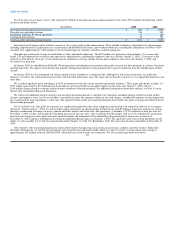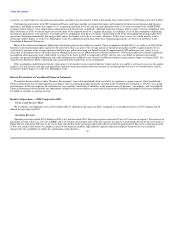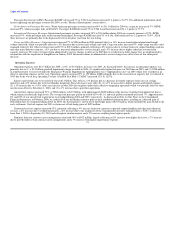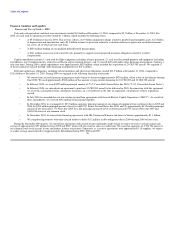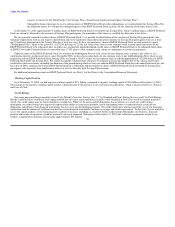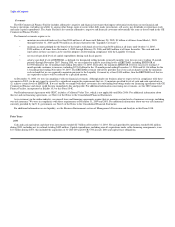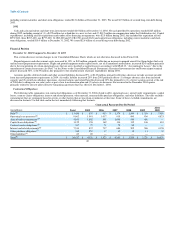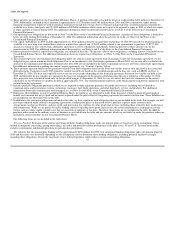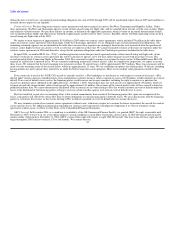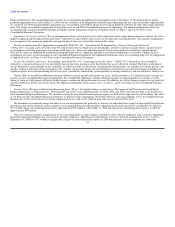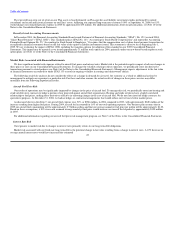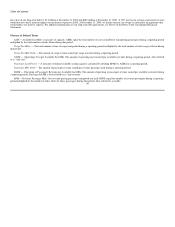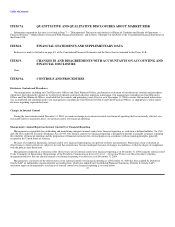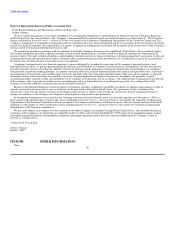Delta Airlines 2004 Annual Report Download - page 42
Download and view the complete annual report
Please find page 42 of the 2004 Delta Airlines annual report below. You can navigate through the pages in the report by either clicking on the pages listed below, or by using the keyword search tool below to find specific information within the annual report.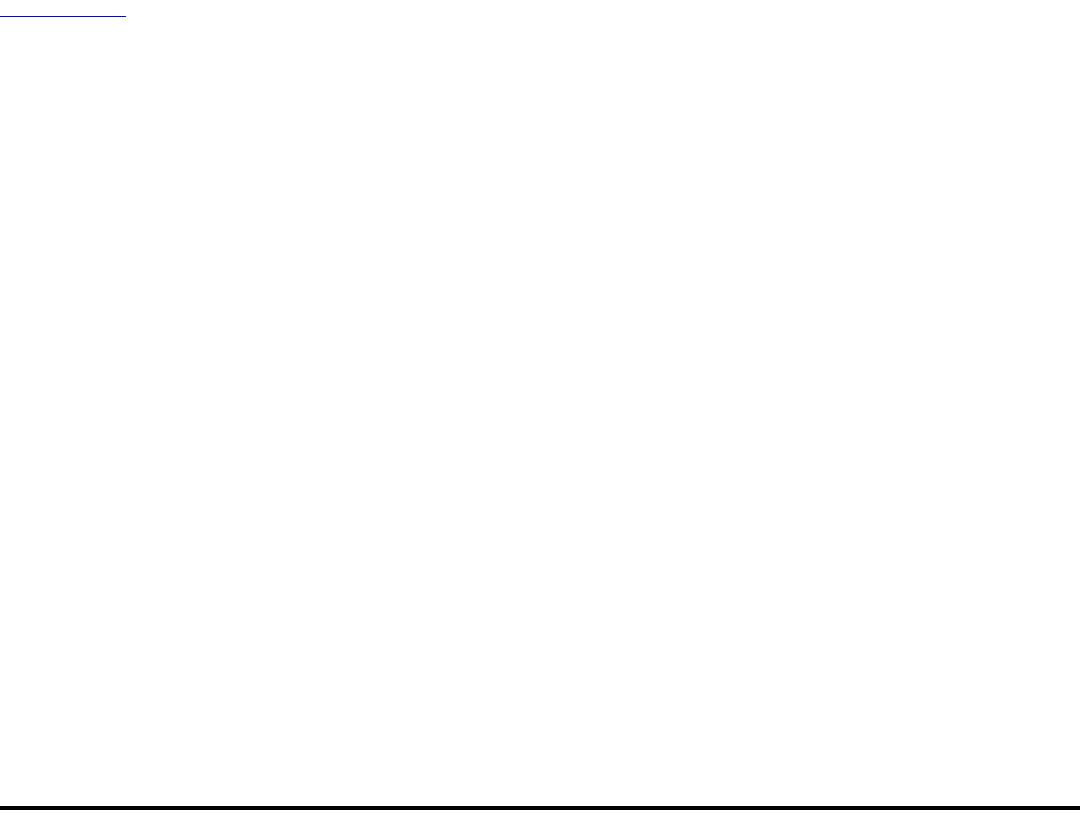
Table of Contents
capacity as trustee for the Delta Family-Care Savings Plan, a broad-based employee benefit plan ("Savings Plan").
• Changed the form of payment we use to redeem shares of ESOP Preferred Stock when redemptions are required under the Savings Plan. For
the indefinite future, we will pay the redemption price of the ESOP Preferred Stock in shares of our common stock rather than in cash.
At December 31, 2004, approximately 5 million shares of ESOP Preferred Stock were held by the Savings Plan. About 4 million shares of ESOP Preferred
Stock are currently allocated to the accounts of Savings Plan participants; the remainder of the shares is available for allocation in the future.
We are generally required to redeem shares of ESOP Preferred Stock (1) to provide for distributions of the accounts of Savings Plan participants who
terminate employment with us and request a distribution and (2) to implement annual diversification elections by Savings Plan participants who are at least
age 55 and have participated in the Savings Plan for at least ten years. In these circumstances, shares of ESOP Preferred Stock are redeemable at a price
("Redemption Price") equal to the greater of (1) $72.00 per share or (2) the fair value of the shares of our common stock issuable upon conversion of the
ESOP Preferred Stock to be redeemed, plus, in either case, accrued but unpaid dividends on the shares of ESOP Preferred Stock to be redeemed. Each share
of ESOP Convertible Preferred Stock is convertible into 1.7155 shares of our common stock, subject to adjustment in certain circumstances.
Under the terms of the ESOP Preferred Stock, we may pay the Redemption Price in cash, shares of our common stock (valued at fair value) or in a
combination thereof. As discussed above, since December 2003, we have been using shares of our common stock to pay the Redemption Price when we are
required to redeem ESOP Preferred Stock. During 2004, we issued 6,330,551 shares of our common stock to redeem approximately 422,000 shares of ESOP
Preferred Stock under the Savings Plan. We cannot reasonably estimate future issuances of common stock for this purpose due to the various factors that
would affect such an estimate, including the duration of the period during which we may not redeem ESOP Preferred Stock for cash under Delaware Law; the
fair value of Delta common stock when ESOP Preferred Stock is redeemed; and the number of shares of ESOP Preferred Stock redeemed by Savings Plan
participants who terminate their employment with us or elect to diversify their Savings Plan accounts.
For additional information about our ESOP Preferred Stock, see Note 11 of the Notes to the Consolidated Financial Statements.
Working Capital Position
As of December 31, 2004, we had negative working capital of $2.3 billion, compared to negative working capital of $1.6 billion at December 31, 2003.
This change in our negative working capital balance is primarily due to the decrease in our cash and cash equivalents, which is discussed above in "Sources
and Uses of Cash."
Credit Ratings
Our senior unsecured long-term debt is rated Ca by Moody's Investors Service, Inc., CC by Standard and Poor's Rating Services and C by Fitch Ratings.
Moody's and Fitch have stated that their ratings outlook for our senior unsecured debt is negative while Standard & Poor's has stated its outlook is positive
watch. Our credit ratings may be lowered further or withdrawn. While we do not have debt obligations that accelerate as a result of a credit ratings
downgrade, our credit ratings have negatively impacted our ability to issue unsecured debt, renew outstanding letters of credit that back certain of our
obligations and obtain certain financial instruments that we use in our fuel hedging program. Our credit ratings have also increased the cost of our financing
transactions and the amount of collateral required for certain financial instruments, insurance coverage and vendor agreements. To the extent we are unable to
access the capital markets, or our financing costs continue to increase, including as a result of further credit ratings downgrades, our business, financial
position and results of operations would be materially adversely impacted. Subsequent to December 31, 2004, our collateral requirements related to our
workers' compensation insurance increased by approximately $35 million. 38


